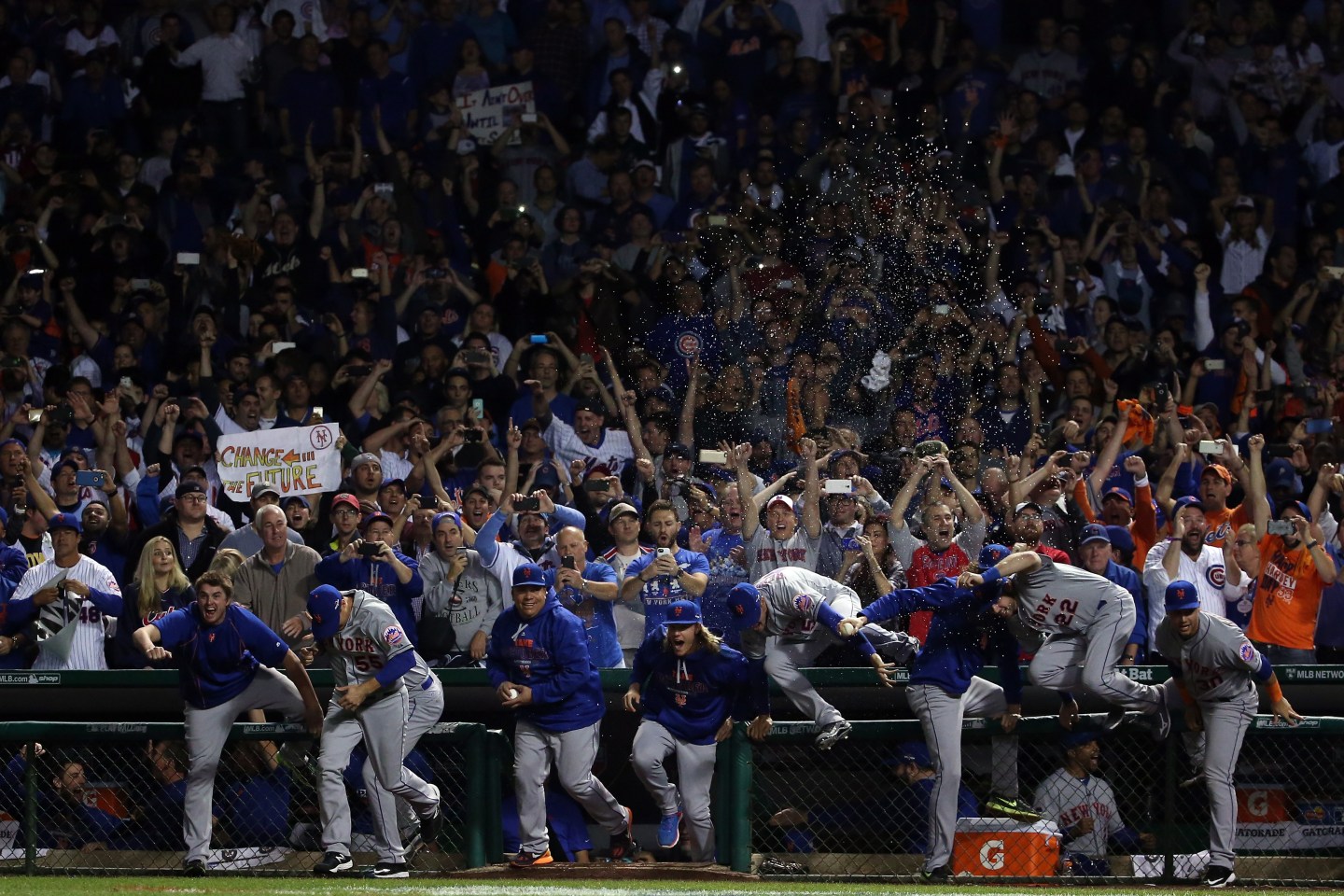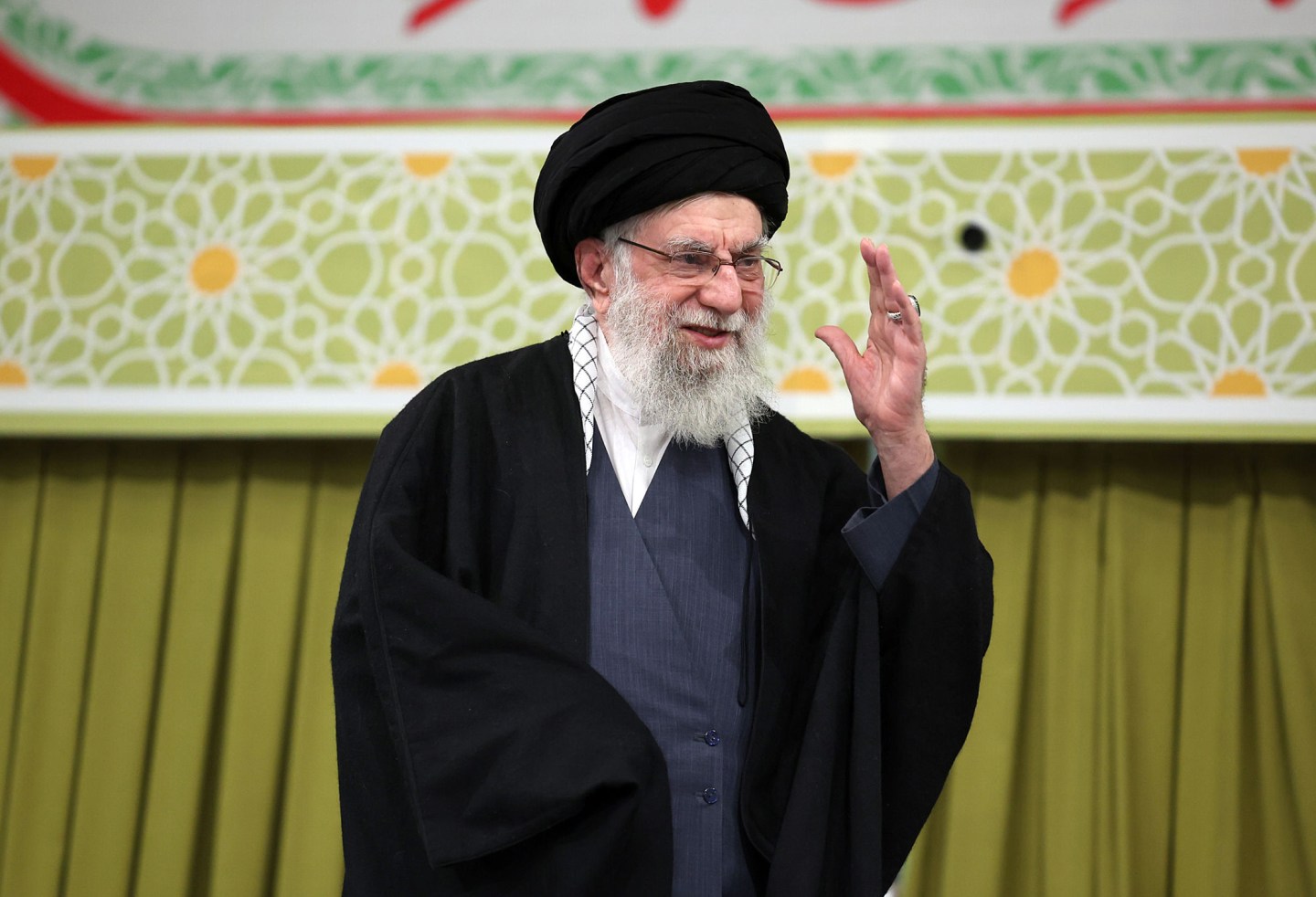Major League Baseball Just Settled This Lawsuit

CHICAGO, IL - OCTOBER 21: The New York Mets dugout rushes the field to celebrate with his team after defeating the Chicago Cubs in game four of the 2015 MLB National League Championship Series at Wrigley Field on October 21, 2015 in Chicago, Illinois. The Mets defeated the Cubs with a score of 8 to 3 to sweep the Championship Series. (Photo by Jonathan Daniel/Getty Images)Photograph by Jonathan Daniel — Getty Images
About the Author
Latest in
Finance
Lorem ipsum dolor sit amet, consectetur adipiscing elit, sed do eiusmod tempor incididunt ut labore et dolore magna aliqua. Ut enim ad minim veniam
By Fortune Editors
October 20, 2025Finance
Lorem ipsum dolor sit amet, consectetur adipiscing elit, sed do eiusmod tempor incididunt ut labore et dolore magna aliqua. Ut enim ad minim veniam
By Fortune Editors
October 20, 2025Finance
Lorem ipsum dolor sit amet, consectetur adipiscing elit, sed do eiusmod tempor incididunt ut labore et dolore magna aliqua. Ut enim ad minim veniam
By Fortune Editors
October 20, 2025Finance
Lorem ipsum dolor sit amet, consectetur adipiscing elit, sed do eiusmod tempor incididunt ut labore et dolore magna aliqua. Ut enim ad minim veniam
By Fortune Editors
October 20, 2025Finance
Lorem ipsum dolor sit amet, consectetur adipiscing elit, sed do eiusmod tempor incididunt ut labore et dolore magna aliqua. Ut enim ad minim veniam
By Fortune Editors
October 20, 2025Finance
Lorem ipsum dolor sit amet, consectetur adipiscing elit, sed do eiusmod tempor incididunt ut labore et dolore magna aliqua. Ut enim ad minim veniam
By Fortune Editors
October 20, 2025Most Popular
Finance
Lorem ipsum dolor sit amet, consectetur adipiscing elit, sed do eiusmod tempor incididunt ut labore et dolore magna aliqua. Ut enim ad minim veniam
By Fortune Editors
October 20, 2025Finance
Lorem ipsum dolor sit amet, consectetur adipiscing elit, sed do eiusmod tempor incididunt ut labore et dolore magna aliqua. Ut enim ad minim veniam
By Fortune Editors
October 20, 2025Finance
Lorem ipsum dolor sit amet, consectetur adipiscing elit, sed do eiusmod tempor incididunt ut labore et dolore magna aliqua. Ut enim ad minim veniam
By Fortune Editors
October 20, 2025Finance
Lorem ipsum dolor sit amet, consectetur adipiscing elit, sed do eiusmod tempor incididunt ut labore et dolore magna aliqua. Ut enim ad minim veniam
By Fortune Editors
October 20, 2025Finance
Lorem ipsum dolor sit amet, consectetur adipiscing elit, sed do eiusmod tempor incididunt ut labore et dolore magna aliqua. Ut enim ad minim veniam
By Fortune Editors
October 20, 2025Finance
Lorem ipsum dolor sit amet, consectetur adipiscing elit, sed do eiusmod tempor incididunt ut labore et dolore magna aliqua. Ut enim ad minim veniam
By Fortune Editors
October 20, 2025











Major League Baseball said it had settled a lawsuit filed against it by fans unhappy about restrictions on watching their favorite teams play on TV.
“We can confirm that a settlement of the Garber case has been reached. Because the process remains ongoing, it is not appropriate to comment further at this time,” Major League Baseball said in a statement posted on its website.
At issue were agreements that limit where certain games can be broadcast which consumers said resulted in anticompetitive blackouts that forced them to pay more to see matches.
Trial in the case had been scheduled to begin on Tuesday, according to the court docket. The case had been filed in 2012 against Major League Baseball, DirecTV, Comcast Corp and others.
Major League Baseball did not give details of the agreement.
NBC Sports Regional Networks said in a statement that they were “pleased with the settlement and look forward to partnering with Major League Baseball to enable our regional sports networks’ offering of live in-market streaming of games to subscribers.”
A spokesman for AT&T, which closed its acquisition of DirecTV last year, had no immediate comment.
Typically, regional sports networks have exclusive rights to broadcast professional baseball and hockey games in their home markets, but cannot broadcast those games elsewhere.
Sports fans, however, complained that this allows professional sports leagues to charge premium prices to watch games outside home markets—for example, if a San Francisco resident wanted to watch the New York Yankees.
The settlement followed a deal struck by the National Hockey League in June to allow fans to watch their favorite teams play outside their home markets without having to pay extra for a league-wide bundle of games.